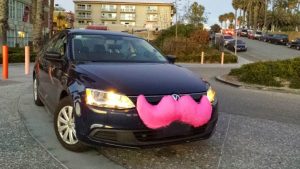The transportation you use once you arrive at your destination, whether traveling from the airport to your hotel or from the commuter train to your business meeting, can be a big part of your overall travel experience.
 Besides impacting your overall feeling about the trip, it can be expensive, depending on what you use. While limos or taxis used to be the predominant method, the popularity of Uber and its competitor Lyft have changed the conversation about what mode of transport is not only most pleasant and efficient, but most cost effective.
Besides impacting your overall feeling about the trip, it can be expensive, depending on what you use. While limos or taxis used to be the predominant method, the popularity of Uber and its competitor Lyft have changed the conversation about what mode of transport is not only most pleasant and efficient, but most cost effective.
To that end, GM and Lyft are betting that utilizing driverless cars will create an even less expensive option for users. Conde Nast Traveler reports the two companies have combined forces, and GM has purchased driverless tech company Cruise Automation, with an eye on capturing that emerging market.
GM and Lyft aren’t the only companies taking a long look at this future of commuting. According to venture capital firm CB Insights, 30 corporations want a piece of the action. Couple that with deregulation by various states and countries abroad, and the incentive only increases to be the first to give consumers what they want.
But do commuters not only want but trust a driverless car to get them where they need to go? They may want it and trust it, but the final decision won’t be up to them. Current US federal law will have to be amended to allow an artificial intelligence system that pilots a car to be considered a driver. According to Reuters, US safety officials seem to be willing to soften their stance on this policy.
Uber and Lyft have already changed the way commuters view transportation for hire. Not having to talk to the driver or listen to his music or be subject to her erratic driving? That could be another game changer.
Do you prefer Uber or Lyft to traditional taxis? Tell us why in the comments section below, on our Facebook page, or in our Twitter stream.
Photo credit: Praiselightmedia (Wikimedia Commons, Creative Commons 4.0)
